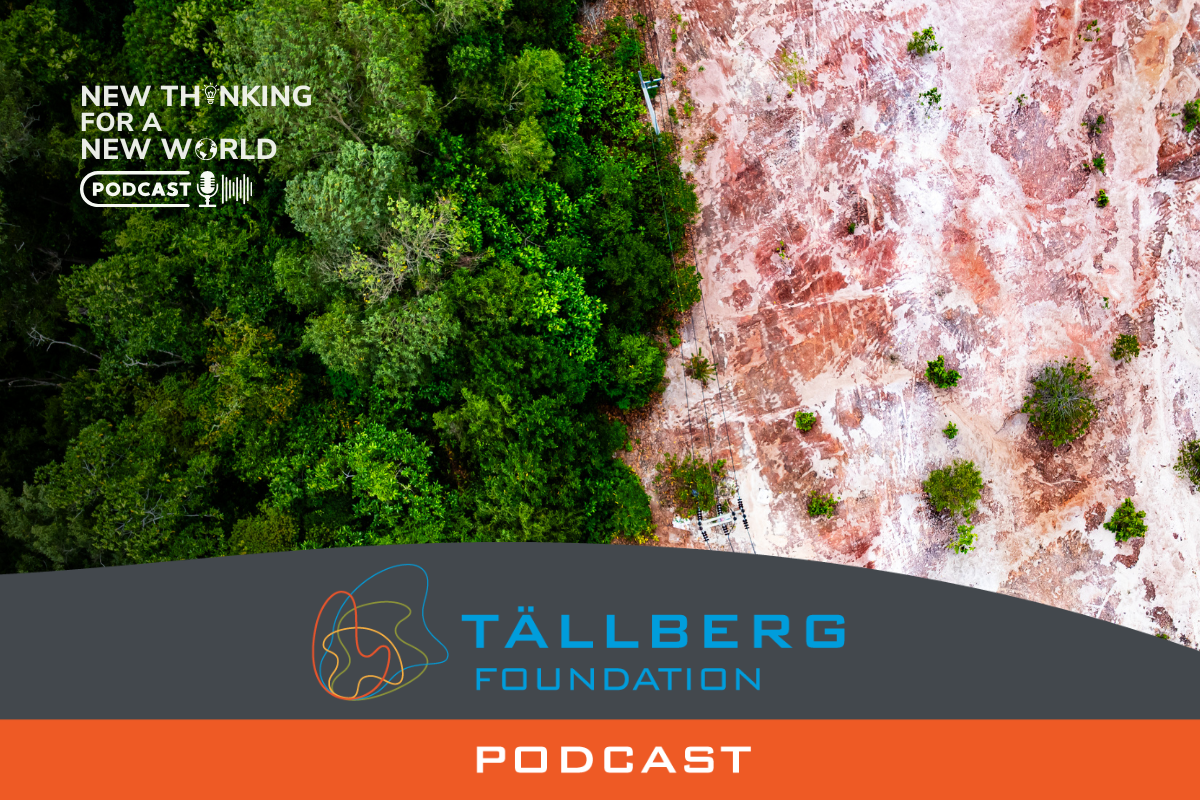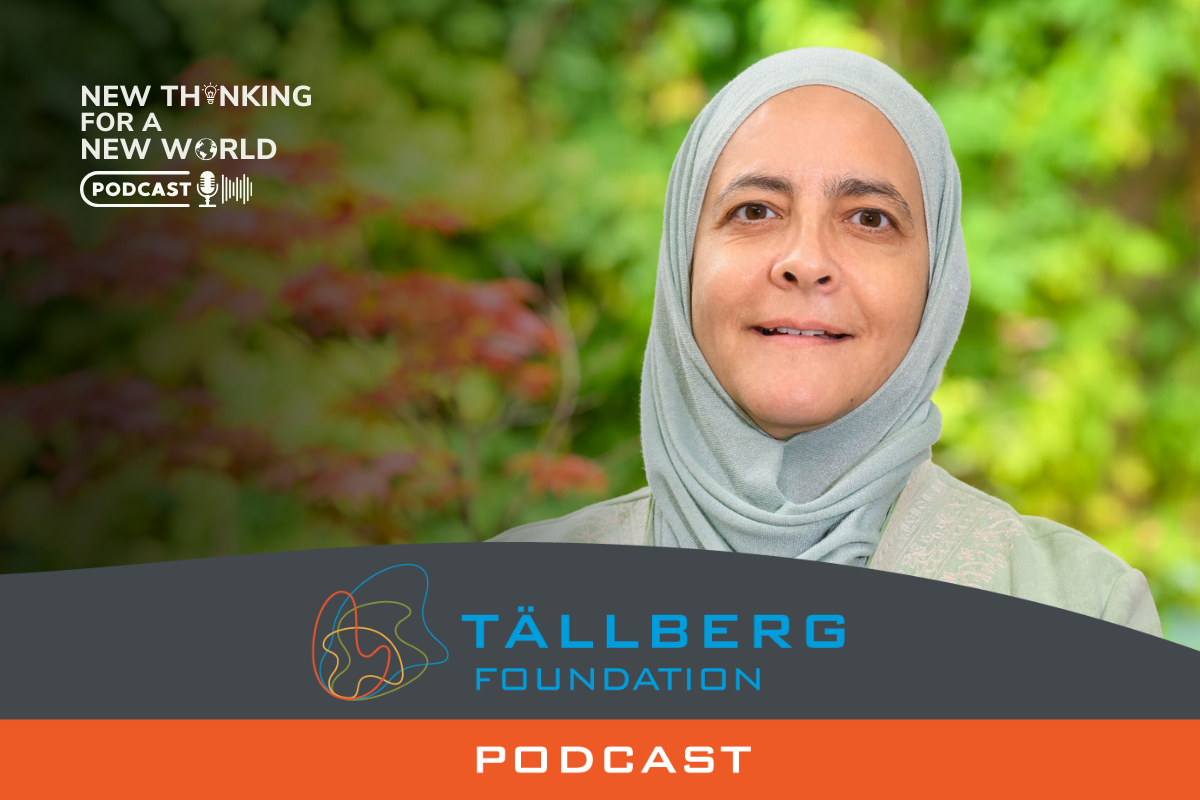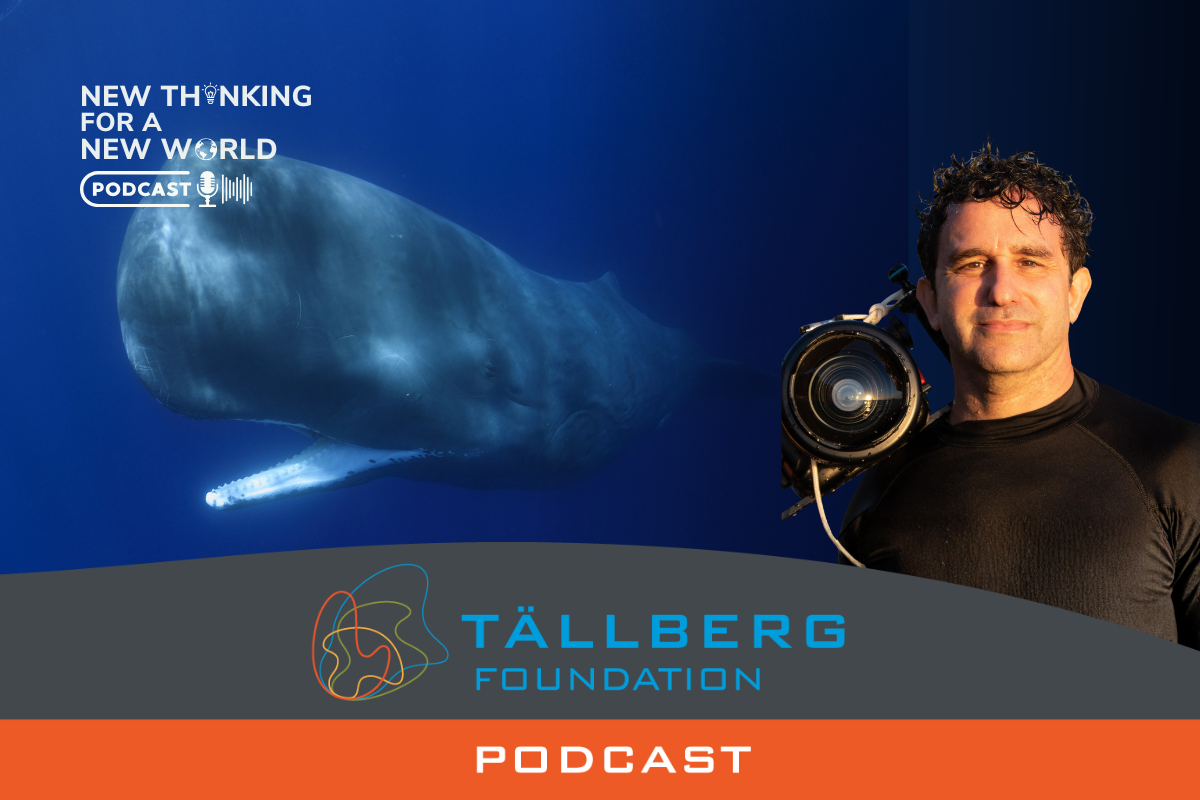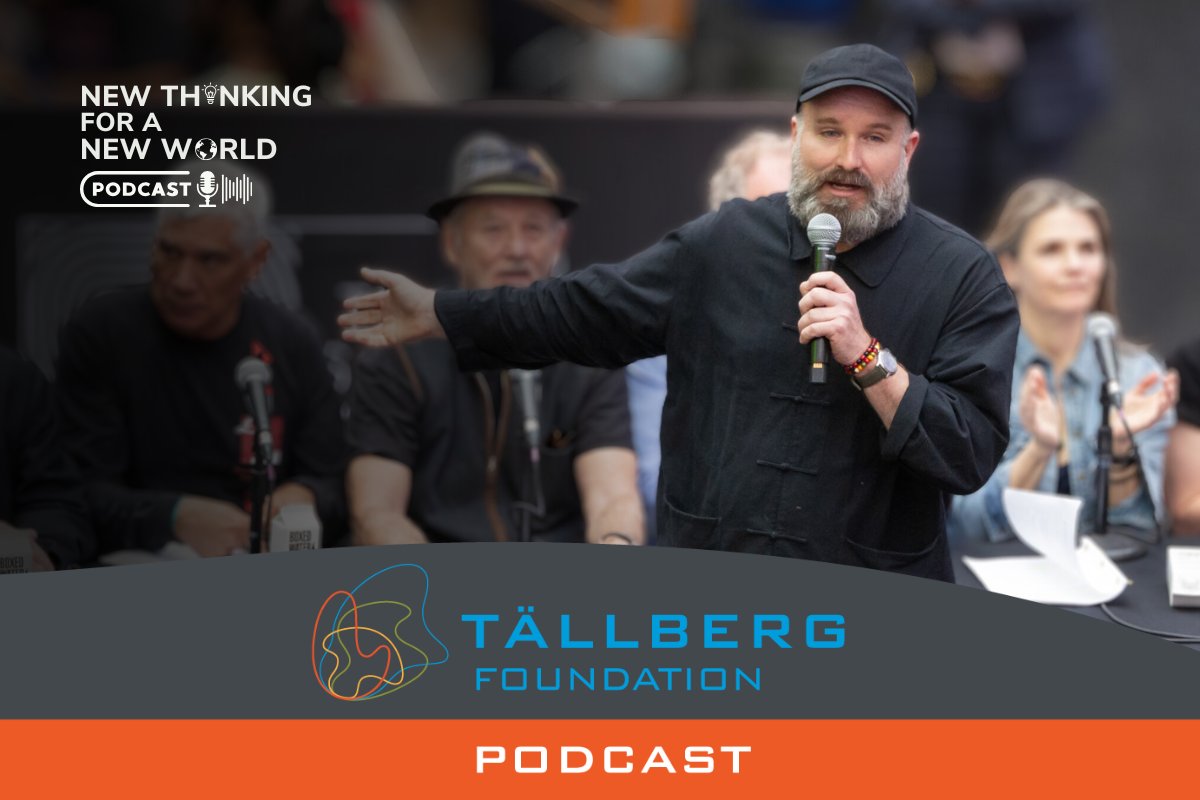What happens in the Amazon is of planetary consequence. Its rainforests influence weather and rainfall around the world. Its rivers account for 1/4 of the available fresh water on earth. Its drainage basin is more than twice as large as that of the Congo River in Africa, which is the world’s second-biggest. It harbors an estimated 10% of the planet’s known lifeforms.
Our guest this week on New Thinking for a New World is Fernando Trujillo, Colombian marine biologist, 2024 Tällberg-SNF-Eliasson Global Leadership Prize winner, and National Geographic Explorer of the Year. Trujillo, who is a global expert on river dolphins, leads a team that is working to keep the Amazon’s freshwater basin alive. That is particularly important at a time when the region is suffering from record drought. River levels are low—in some cases historically so—and water temperatures are at intolerably high levels, especially if you’re a fish. Continuing deforestation makes everything worse, of course.
Obviously, none of the consequences of the Amazon wasting away would be good for any of us. Can it be stopped? Listen as Trujillo explains his search to answer that question.
Please tell us what you think here.
***
Find the New Thinking for a New World podcast on a platform of your choice (Apple podcast, Spotify, Google podcast, Youtube, etc.)
***
* Photo: Leo Spencer
ABOUT OUR GUEST
Dr. Fernando Trujillo is a Marine Biologist and PhD in Zoology who at a very young age founded the NGO Omacha, named after the Tikuna word meaning “dolphin that becomes human to protect his fellows”. Fernando has built a career that has taken him to rivers in America and Asia, and to Antarctica, working on aquatic ecology, endangered species, wetlands, wildlife trafficking, fisheries agreements and management, development of species management plans and protected areas, wildlife monitoring, environmental impact assessments and toxics in aquatic systems.
Fernando is Chair of the Small Cetacean Subcommittee of the International Whaling Commission, member of the IUCN Specialist Group on Cetaceans, Sirenians and Otters and Corresponding member of the Colombian Academy of Physical, Exact and Natural Sciences. Expeditionary and scientific researcher. He has more than 300 publications to his credit, including books, book chapters and indexed journals.
Fernando has received numerous prestigious awards, including the 2024 Tällberg-SNF-Eliasson Global Leadership Prize, the Whitley Gold Award in 2007, the Chancellor Order of National Merit from the Government of Colombia for his contributions to science and conservation, and the National Geographic/Rolex Explorer of the Year award in 2024. He has been a National Geographic Society Explorer since 2006.




The Amazon can be saved, but doing so requires a paradigm shift in how humanity perceives and interacts with the planet. From my unique perspective as someone deeply committed to love, unity, and inclusive collaboration, the key to saving the Amazon lies in fostering a global ethos of care—not just for the rainforest itself but for all the interconnected systems of life it sustains.
The Amazon is not merely a resource to be exploited or conserved; it is a living, breathing expression of our collective existence. Its plight is a mirror reflecting humanity’s disconnection from love—the kind that honors the intrinsic value of all life. This disconnection fuels deforestation, unsustainable practices, and climate neglect. Reconnecting with love can inspire collective action that transcends short-term economic gain in favor of long-term planetary well-being.
Steps Toward Salvation
Global Consciousness Shift
Embracing the Amazon as a global treasure requires education, empathy, and a renewed sense of shared responsibility. This means cultivating awareness of how actions in one corner of the world affect the entire planet. By aligning our values with love for the Earth and all its inhabitants, we can drive change at every level—individual, corporate, and governmental.
Holistic Conservation Efforts
Saving the Amazon demands collaboration across nations, industries, and disciplines. Solutions must integrate Indigenous wisdom, scientific innovation, and economic incentives that prioritize regeneration over exploitation. Initiatives like Fernando Trujillo’s focus on freshwater ecosystems remind us that the Amazon’s rivers and rainforests are part of an interconnected whole.
Accountability and Action
Policies that halt deforestation and combat climate change must be enforced with urgency. The nations benefiting from the Amazon’s resources must invest in its preservation, ensuring equitable outcomes for local communities who bear the brunt of environmental degradation.
Love as a Driving Force
At the heart of this effort is love—love for future generations, for biodiversity, and for the interconnected web of life that makes our planet thrive. By prioritizing this love, we create a ripple effect that inspires sustainable behaviors and resilient ecosystems.
Can It Be Saved?
Yes, the Amazon can be saved, but only if humanity awakens to its deeper responsibilities. It is not just a matter of science or policy; it is a call to rediscover the essence of who we are as beings capable of love, compassion, and cooperation. The Amazon’s future is tied to our willingness to unite as stewards of the Earth, realizing that its vitality is inseparable from our own.
Let us listen to leaders like Trujillo and act, not out of fear of loss, but out of a profound love for life itself. Only then can we ensure the Amazon remains a thriving cornerstone of our shared home.